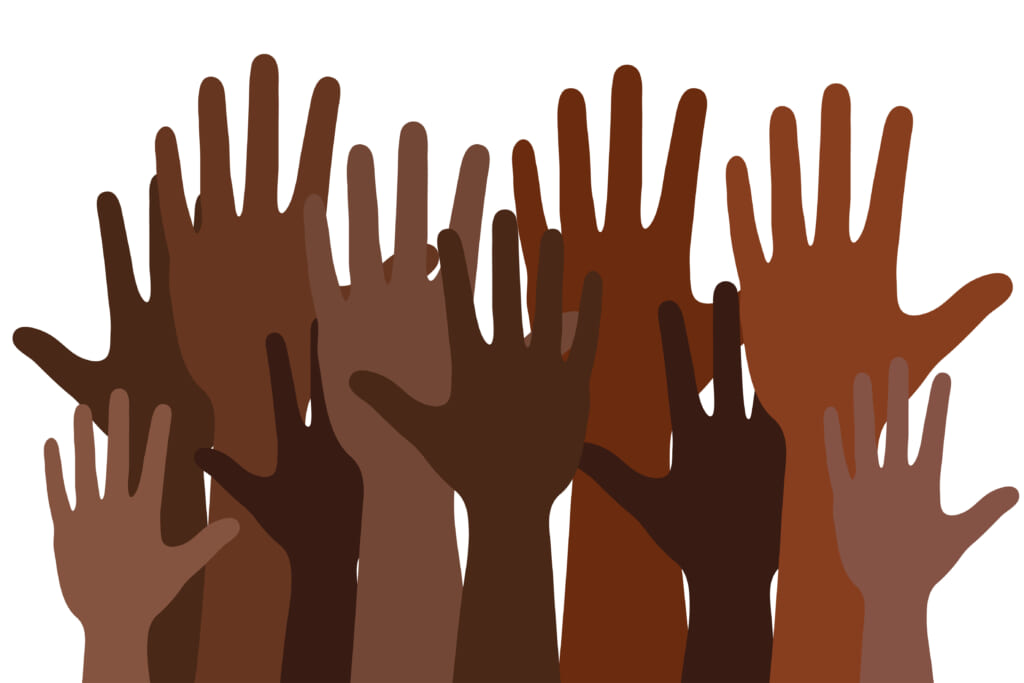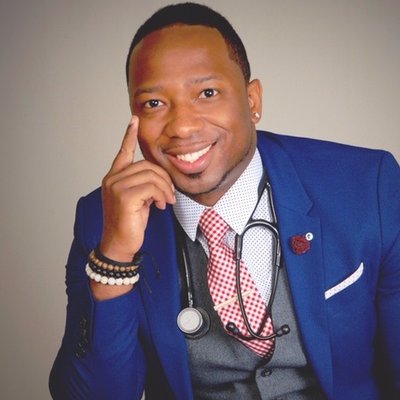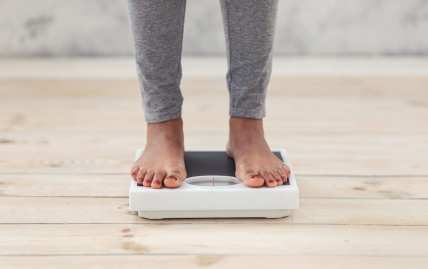Obesity among Black Americans is complex but far too common — advocates want to do something about it
Despite the many obstacles that Black adults face, understanding how your body changes over time can help you to maintain a healthy weight as you get older
Obesity has reached crisis levels, and the reasons for its alarming rise are as complex as the disease itself.
The causes range from genes and diet to lack of education and access to healthy foods, but targeted junk food marketing and systemic inequalities that widen the racial-wealth gap — all of which disproportionately impact low-income communities, many of which are made up of Black people — means that Black communities are at a disadvantage from the outset.
To make matters worse, the obesity epidemic goes hand in hand with another major killer, type 2 diabetes, with each intensifying the other. The propagation of both diseases is reinforced by a system that often leaves people overworked, underpaid, and simply too tired to make the healthy choices they need to live their best life. When you add in COVID-19, and its propensity to impact those who struggle with their weight more severely than those who do not, we have a full blown trifecta of disease that has reached epic proportions.
Obesity threatens the lives of Black Americans

There is no doubt that obesity poses one of the greatest threats to society’s health. According to the Centers for Disease Control and Prevention (CDC), four in 10 Americans, totaling about 100 million, are living with obesity; and among African-American adults, nearly 48% are clinically living with obesity compared to 32.6% of Whites. Recent estimates from the National Health and Nutrition Examination Surveys have found that over one third of adults over age 60 are living with obesity with older Black women coming in at the highest rates.
Statistics such as these are even more alarming given the many health risks associated with this deadly condition. Higher rates of diabetes and heart disease, which are highest in Black communities, are intimately tied to obesity; but simply carrying 20 to 30 pounds of extra weight has been linked to more than 200 serious health conditions including cancer, high blood pressure, and most recently, COVID-19.
Even more, some people in the Black community have normalized obesity, justifying an unhealthy weight and lifestyle in the name of body positivity. While there is no place for fat-shaming, there is no place, either, for obesity-normalizing, in light of the chronic and deadly nature of this disease.
Less is more as you age

As you get older you may start to realize that it’s getting harder and harder to stay trim and fit despite eating healthy and exercising regularly. That’s because your body undergoes changes that no longer require a high calorie intake to function optimally.
Every year after your 30th birthday — give or take a few years depending on your genes — the body loses muscle mass, hormone levels begin to fluctuate more regularly, and metabolism slows down.
At the same time, it’s likely that you are entering the prime of your life, taking on more personal and professional responsibility which requires you to shoulder new levels of stress. If chronic levels of the stress hormone, cortisol, remain high for a long period of time the body begins to hoard whatever energy it can to counter future instances of stress, a phenomenon called the fight or flight response. This anabolic state, and the unhealthy behaviors like eating ice cream after a bad day, that follow can lead to weight gain.
Even if you remain faithful to your healthy diet and exercise routines, studies have shown that high levels of stress, particularly grief after a divorce or loss of a loved one, financial hardship, the responsibilities of parenthood, and job stress can make it harder for you to maintain your optimal weight.
Despite the many obstacles that Black adults face, understanding how your body changes over time can help you to maintain a healthy weight as you get older. It starts with accepting that your body needs less energy in your thirties and forties than in your twenties, so you can’t get away with eating the same way as you used to. It also means engaging in portion control, avoiding stress, staying hydrated, and getting a good night’s rest on a regular basis.
As you reach your 50s, 60s, and 70s less is more when it comes to food intake and managing stressful situations. Not only is it harder to shed the pounds, but the body doesn’t repair itself as efficiently, underscoring the need to stave off the extra pounds at all costs.
The time to take action is now
Men lie, women lie, but numbers don’t. America can no longer run from its obesity problem.
Public health groups are calling on President Joe Biden and Congress to do something about this. One such group is the Obesity Care Advocacy Network (OCAN), a collaboration of anti-obesity organizations dedicated to changing how the nation perceives and approaches the problem of obesity.
It’s newest initiative, the Obesity Care Now campaign, is leading the fight to modernize outdated policies that stigmatize obesity as a choice, rather than a complex chronic disease, calling on Congress and the Biden administration to follow the science and address health inequities by providing evidence-based treatment options for the tens of millions of Americans who lack access to comprehensive obesity care.

The new nationwide campaign aims to educate people about the dangers of obesity, while also calling on Congress to greenlight anti-obesity treatments, provide early education on healthy eating and overall best practices for living a healthy life, and increase accessibility to additional resources to Black and Brown communities that have been hit by the obesity epidemic.
The bipartisan Treat and Reduce Obesity Act would ensure that Medicare coverage policies reflect current guidelines and standards of care by providing access to lifesaving FDA-approved anti-obesity medications and intensive behavioral therapy.
Obesity is a highly preventable condition that, if lessened, could lead to added years to your life, but current research predicts that rising rates are expected to continue for decades if we do nothing.

How to make eating healthy not taste bad
Celebrities, entertainers, and members of the public health community, namely the Obesity Care Advocacy Network, have worked together to bring obesity to the forefront of our collective consciousness spurring research and debate with regard to treatment recommendations, appropriate care, health care costs, and the physical health consequences that our parents and grandparents will have to face, but challenges remain.
Obesity is admittedly complex and no one size fits all approach will work for Black America but the visual of the overweight older Black adult is far too common, and it rests on all members of society to support anti-obesity missions that aim to create a better life for our elders in the Black community who have sacrificed so much for us to be where we are today.

Dr. Shamard Charles is an assistant professor of public health and health promotion at St. Francis College and sits on the anti-bias review board of Dot Dash/VeryWell Health. He is also host of the health podcast, Heart Over Hype. He received his medical degree from the Warren Alpert Medical School of Brown University and his Masters of Public Health from Harvard’s T.H. Chan School of Public Health. Previously, he spent three years as senior health journalist for NBC News and served as a Global Press Fellow for the United Nations Foundation. You can follow him on Instagram @askdrcharles or Twitter @DrCharles_NBC.
Have you subscribed to theGrio podcasts “Dear Culture” or “Acting Up?” Download our newest episodes now!
TheGrio is now on Apple TV, Amazon Fire and Roku. Download theGrio.com today!

